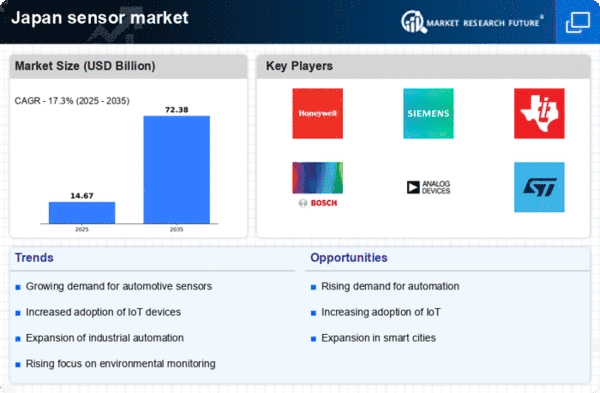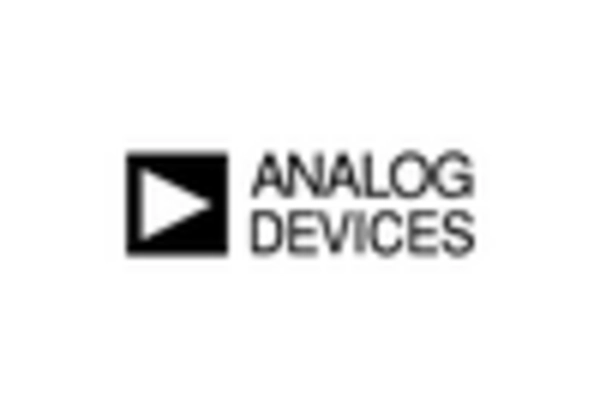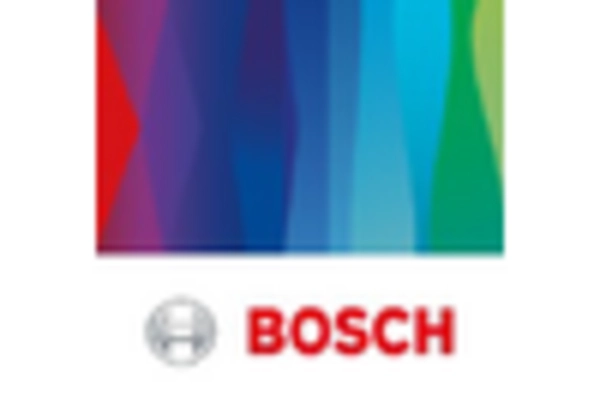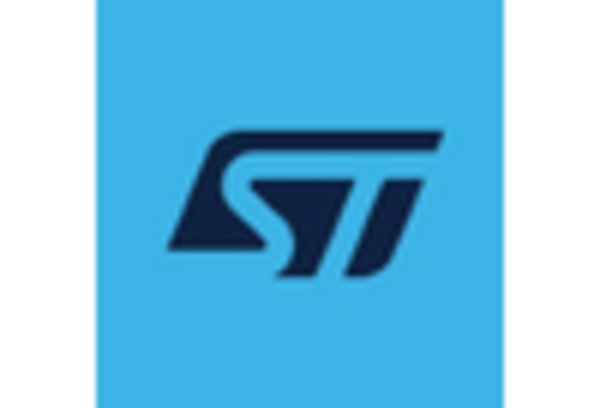Growing Focus on Smart Cities
Japan's urbanization trends are driving the sensor market towards the development of smart cities. The integration of sensors in urban infrastructure is essential for improving public services, traffic management, and environmental monitoring. As cities become more interconnected, the demand for sensors that can collect and analyze data in real-time is likely to rise. This trend is reflected in the projected investment of over $10 billion in smart city projects by 2030. The sensor market is poised to capitalize on this growth, as municipalities seek to enhance the quality of life for residents while promoting sustainability and efficiency.
Government Initiatives and Support
The Japanese government is actively promoting the development and integration of advanced sensor technologies within various industries. Initiatives aimed at enhancing research and development in the sensor market are expected to foster innovation and competitiveness. For instance, funding programs and partnerships with private enterprises are being established to accelerate the deployment of sensors in sectors such as healthcare, transportation, and agriculture. This governmental support is anticipated to contribute to a projected increase in the sensor market's value, potentially reaching $5 billion by 2027. Such initiatives not only stimulate economic growth but also encourage the adoption of cutting-edge technologies.
Emerging Applications in Agriculture
The agricultural sector in Japan is increasingly leveraging sensor technologies to enhance productivity and sustainability. The sensor market is benefiting from the adoption of precision agriculture practices, which utilize sensors for soil monitoring, crop health assessment, and resource management. This trend is expected to drive market growth, with the agricultural sensor market projected to reach $1.5 billion by 2026. As farmers seek to optimize yields and reduce environmental impact, the integration of sensors into farming operations is becoming essential. Consequently, the sensor market is likely to see a rise in demand for innovative agricultural solutions that promote efficiency and sustainability.
Rising Demand for Smart Manufacturing
The sensor market in Japan is experiencing a notable surge in demand due to the increasing adoption of smart manufacturing practices. As industries strive for enhanced efficiency and productivity, sensors play a pivotal role in automating processes and monitoring equipment health. The market for industrial sensors is projected to grow at a CAGR of approximately 8.5% from 2025 to 2030. This growth is driven by the need for real-time data analytics and predictive maintenance, which are essential for minimizing downtime and optimizing operations. Consequently, the sensor market is likely to benefit from the ongoing digital transformation across various sectors, including automotive, electronics, and food processing.
Increased Investment in Healthcare Technologies
The healthcare sector in Japan is witnessing a significant transformation, with an increasing reliance on sensor technologies for patient monitoring and diagnostics. The sensor market is expected to expand as healthcare providers adopt wearable devices and remote monitoring systems. This shift is driven by the need for improved patient outcomes and the efficient management of healthcare resources. The market for medical sensors is projected to grow at a CAGR of 9% through 2028, indicating a robust demand for innovative solutions. As healthcare systems evolve, the sensor market is likely to play a crucial role in facilitating advancements in telemedicine and personalized care.















